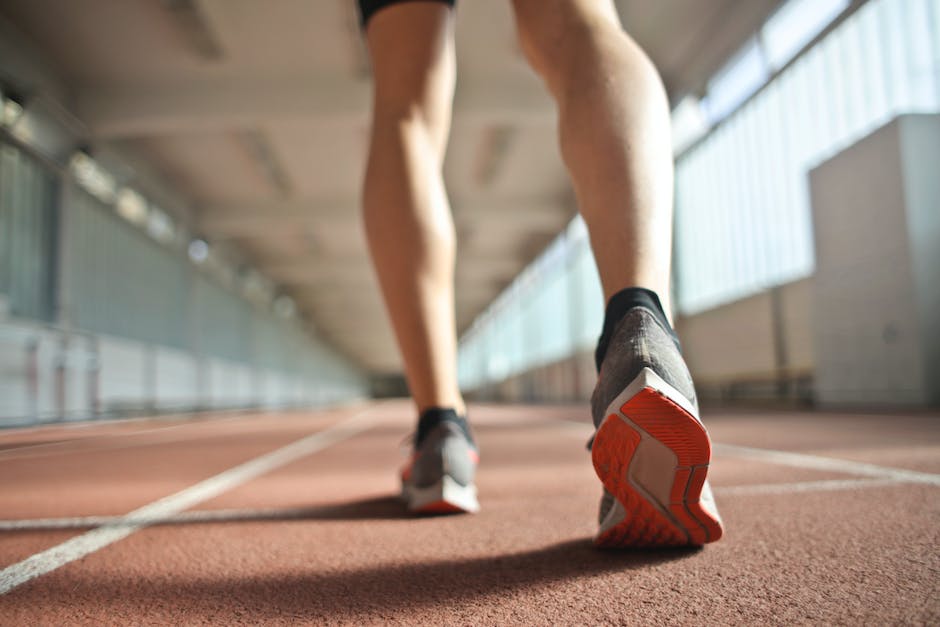Cannabis has been a controversial topic for decades, and it’s only in recent years that perceptions have started to change around the plant. As more research emerges, it’s becoming clear that cannabis has significant potential for improving athletic performance, recovery, and overall well-being. What’s exciting is that the evidence suggests that cannabis can help both amateur and professional athletes alike, indicating that it’s not just a fringe interest, but a credible part of an athlete’s toolkit. In this blog post, we’ll dive into the science behind cannabis and athletics and explore why so many are now turning to cannabis to improve their performance and health.
The history of cannabis use in athletics
Cannabis has a long history of use in athletics, dating back to ancient civilizations in India and China where it was utilized for medicinal purposes. In the Western world, athletes in the 19th and early 20th centuries frequently used cannabis for its alleged performance-enhancing effects. However, the use of cannabis in sports became stigmatized in the mid-20th century due to its association with counterculture movements and the War on Drugs.
Despite this stigma, cannabis has continued to be used by some athletes, particularly in endurance sports, to help manage pain and inflammation, reduce anxiety, and improve sleep. Recently, as attitudes towards cannabis have shifted, some professional athletes have spoken out about their cannabis use and advocated for its legalization in sports. The World Anti-Doping Agency removed CBD, a non-psychoactive compound found in cannabis, from its list of banned substances in 2018, but THC, the compound responsible for the plant’s psychoactive effects, is still prohibited.
As research on the benefits and risks of cannabis use in athletics continues to develop, it remains a controversial topic. However, many athletes and cannabis advocates argue that athletes should have the right to use cannabis if it helps them perform at their best and recover from injuries.
The physiological effects of cannabis on the body and how it can enhance performance
Cannabis has been shown to have a number of physiological effects on the body that can potentially enhance athletic performance. Firstly, cannabis has been known to have pain-relieving effects due to its interaction with the body’s endocannabinoid system. This can reduce muscle soreness and fatigue that can impede athletic performance.
Additionally, cannabis can help to reduce inflammation in the body, which can also be beneficial for athletes. Inflammation can lead to joint pain and decreased range of motion, which can impact an athlete’s ability to compete.
Cannabis has also been shown to improve focus and concentration in some individuals. This can be useful for athletes during training and competition, as it can help them to maintain their focus and performance levels.
While the use of cannabis in athletics is still controversial and not yet fully understood, it is clear that there are potential benefits to its use. As more research is conducted, we may gain a better understanding of how to safely and effectively incorporate cannabis into athletic performance and recovery strategies.
The potential benefits of cannabis for recovery, including reducing inflammation and pain
Cannabis has been shown to have potential benefits for recovery, particularly in reducing inflammation and managing pain. The active compounds in cannabis, such as cannabinoids and terpenes, work with the body’s endocannabinoid system to regulate various physiological processes, including inflammation and pain response. For athletes who endure constant physical stress on their bodies, using cannabis products may aid in reducing soreness and inflammation post-workout, as well as managing chronic pain from injuries. This natural alternative to traditional pain management methods can significantly enhance recovery time and improve overall well-being. Additionally, cannabis has been shown to possess anti-anxiety properties, aiding athletes in reducing the stress that comes with competition and training. As the stigma surrounding cannabis continues to fade and research into its benefits for athletic performance increases, it stands to become a common practice used by athletes around the world.
Discussion of the various methods of cannabis consumption, including edibles, tinctures, and inhalation
Cannabis can be consumed in various forms, each offering unique effects on the mind and body. Edibles allow for a discreet and consistent dose, while inhalation (smoking or vaping) provides an immediate effect that is easy to control. Tinctures also offer precise dosing and are sublingually absorbed for quick effects. The method of consumption can ultimately come down to personal preference, as well as considering the desired onset time and duration of effects. It’s important to note that dosages and consumption methods should be carefully chosen and monitored, especially for athletes who are subject to drug testing. As the use of cannabis in athletics continues to evolve, it’s crucial to stay informed on the research, regulations, and best practices.
Legal considerations for athletes using cannabis
Athletes who are interested in using cannabis should be aware of the legal considerations related to its use. Although many states have legalized the use of medical and/or recreational cannabis, it is still a banned substance by many athletic organizations, including the World Anti-Doping Agency (WADA), the National Collegiate Athletic Association (NCAA), and the National Football League (NFL).
Athletes who compete in sports organizations that prohibit cannabis use may face consequences such as disqualification, suspension, or expulsion if they test positive for cannabis. Even if an athlete is using cannabis for medical reasons, they may still be prohibited from using it during competitions.
Therefore, athletes who are considering using cannabis should research the regulations of their specific athletic organization to ensure their use is compliant. They should also consult with their physician and/or a knowledgeable cannabis professional to identify the most appropriate form of use and dosage, and to mitigate potential effects on performance and recovery.
It is important for athletes to be informed and responsible when deciding to incorporate cannabis into their training or daily routine. They must ensure that their use of cannabis is legal and compliant with their athletic organization’s rules and regulations.
The potential drawbacks of cannabis use for athletes, including impaired reaction time and increased risk of injury
While cannabis has potential benefits for athletes, it is important to recognize the potential drawbacks as well. One significant concern is impaired reaction time, which can put athletes in danger during high-speed or high-impact sports. In addition, cannabis use has been linked to an increased risk of injury due to impaired judgment and reduced coordination. These risks call for careful consideration and responsible use when considering cannabis as a part of an athlete’s training and recovery regimen. Athletes should consult with medical professionals and adhere to local laws and regulations when considering the use of cannabis.
A look at current research on cannabis and athletics
Cannabis and athletics have a complicated relationship. For many years, cannabis has been seen as a threat to athletic performance and well-being. However, a more in-depth investigation of the scientific studies’ findings is giving us new insights into cannabis’s potential benefits for athletes.
One study found cannabis to be beneficial in reducing pain, inflammation, and muscle spasms, indicating potential analgesic and anti-inflammatory effects. Another study reports that cannabis can improve sleep quality, an essential aspect of athlete recovery.
However, the research is far from conclusive. Some studies suggest that cannabis use may impair mental and physical performance and lead to an increase in the risk of injury. These findings indicate the need for further research to fully understand cannabis’s effect on athletic performance and well-being.
Despite the unclear scientific evidence, many athletes are choosing to use cannabis as part of their fitness regimen. More education and research can help us better understand cannabis‘s benefits and risks for athletes, making informed decisions on its use.
Personal anecdotes from athletes who incorporate cannabis into their training and recovery
Athletes have been incorporating cannabis into their training and recovery routines for various reasons, and personal anecdotes from them have been surfacing. One athlete, for example, uses cannabis to help with pre-workout anxiety, while another uses it for pain relief after workouts. There are also some who use it to enhance their focus during training or to help with insomnia.
One professional athlete who openly discusses their cannabis use is retired NFL player Eugene Monroe. He has been advocating for the use of cannabis in the league to help manage pain and reduce opioid addiction. Another notable athlete is Nate Diaz, a UFC fighter who sparked controversy after smoking CBD (a non-psychoactive component of cannabis) during a post-fight interview.
While not all athletes choose to incorporate cannabis into their routines, those who do claim it can provide numerous benefits. It is important, however, to note that the use of cannabis is still a controversial topic in the athletic community and the legality of it varies from state to state.







